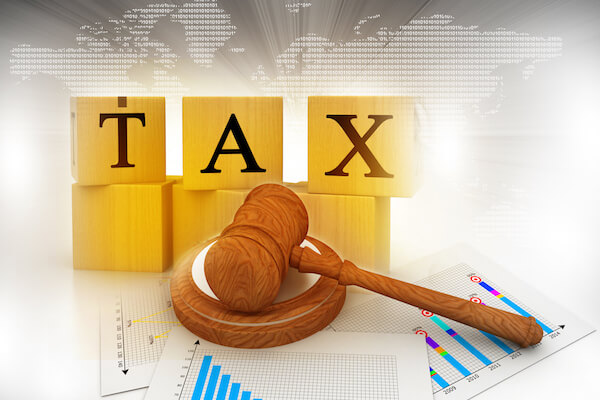There are a total of 20 different types 1099 forms that can be filed with the IRS. Form 1099 is an information return which means its primary purpose is to provide information to taxpayers and the Internal Revenue Service. It is important to taxpayers and the IRS because it is how non-employment income earned during the tax year is recorded and reported.
Determining the Form 1099 deadline is based on what variety of forms it is. For independent contractors and small businesses, there are only a handful of common forms which need to be considered in most cases. Let's go over the deadline to file your freelancer taxes.
Note: If you would like some filing reminders and help with recording all of your tax receipts, try Bonsai Tax. You'll never have to worry about receiving a late penalty and you'll maximize your tax deductions. Our app will scan your bank/credit card receipts to discover and categorize tax write-offs. Users usually save $5,600 from their tax bill. Try a 7-day free trial today.
2 Types of IRS Form 1099 Deadlines
For all 1099 forms, the IRS publishes two types of dates that are applicable for each 1099. The first due date is the date a 1099 must be provided to the taxpayer. The second due date is when the 1099 needs to be filed with the internal revenue service.
The Date Form 1099 Must Be Provided to Taxpayers
For most 1099s that will be applicable to independent contractors and small businesses, the deadline is January 31 unless January 31 falls on a weekend. For example, it was due on February 1, 2021. If it is on a weekend the required date is the following Monday. The exception to this is for the 1099 MISC with data in boxes 8 or 10, 1099 B, and 1099 S. These forms must be provided by February 16.
The Date Form 1099 Must Be Provided to the IRS
There are three different applicable due dates depending on the form. The 1099 NEC has a due date of January 31 for all filings (due to recipients, filing mailed to the IRS, electronic filing to the IRS). This is the only form with the same requirement for all filings.
The second due date is for 1099 forms which are filing with the IRS by mail. If filed by mail all other forms must be provided by February 28. If February 28 falls on a weekend then it is due the following Monday. For example, it was due on March 1, 2021.
The third due date applies to those who will electronically file the form with the IRS. If you are e-filing the due date is March 31. If March 31 falls on a weekend it then it is due the following Monday.
What Are the State-Specific Filing Deadlines?
There are four loose groups of state filing requirements. The first is the group of states with a combined State/Federal program for the 1099-Series forms. The second is the group of states with no Form 1099 MISC filing requirement. The third is the group of states that require a 1099 MISC filing if you withheld taxes. Finally, there are states which require a separate 1099 MISC filing or have unclear filing requirements. It is essential to research your specific state's regulation to determine which group your state falls into.
If you need more time to file, you can always file an extension for 1099 forms.

Who Should Receive a 1099?
The 1099 is used to report income that is not included in the traditional Form W-2. While each form has its own set of rules, the general rule is if you receive income that is not reported on your Form W-2 then that income should be reported on a 1099. If you would receive a 1099 for all income that is not reported on a W-2 then it is much simpler to file your tax return. All you would need to do, from an income perspective, is include all of your Form W-2 information and all of your Form 1099 information and your tax turn would be accurate.
What Type of 1099 Could You Receive?
Before we take a closer look at the common types of 1099s you may receive, it is important to remember that if you are an independent contractor or employer then you may have also had the responsibility to provide 1099s if the people you pay fall into these categories as well.
1099-INT
The 1099-INT is sent to taxpayers when they earn more than $10 in interest income during the tax year. In most cases, a 1099-INT will be issued by a bank or brokerage firm because that is where you would normally accrue interest income. Depending on your business entity, you may also receive a 1099-INT from your own business. For example, if your business is a partnership, you may have loaned the business money which the business repays. In this situation, your partnership would be responsible for issuing a 1099-INT and you would need to report the income when filing your tax forms.
1099-DIV
The 1099-DIV is sent to taxpayers if any dividend income was generated during the tax year. This form is normally issued by brokerage firms but it is possible a closely held corporation would issue it directly to taxpayers. It is important to remember that dividends are taxable regardless of whether you actually receive cash or if you reinvest it. In order for the dividends to not be considered taxable income is if they are issued within an account that receives special tax treatments such an IRA, 401(k), or 403(b) account.
1099-R
The 1099-R form will be sent to taxpayers if they received a distribution from a pension, retirement plan, or individual retirement account. There are also certain types of annuities that are required to issue a 1099-R. It is important to remember that not all retirement distributions are taxable but you will still receive a 1099-R regardless of whether the distribution is taxable or not. The difference will be how the 1099-R is filled out.
1099-MISC
The 1099-MISC had some important changes in 2020. Prior to 2020, the form was essential a catch-all for all of the income that did not have a specific form. In 2020 the actual form change was minor but the impacts are significant. The primary change is independent contractors will no longer receive this for non-employee compensation. The IRS brought back the 1099-NEC which is used for non-employee compensation. As a result, the 1099-MISC will not be issued nearly as often as it used to be.
1099-NEC
As an employer, it is required you file the form 1099-NEC if you pay a non-employee $600 or more during the tax year. If you earn more than $600 from a single source that is not reported on the W-2 then you should expect a 1099-NEC to be included with your tax return.
If you are an independent contractor it is normal to expect a form 1099-NEC but there are many other situations that may result in a 1099-NEC. A common example is anyone who works via a single-person LLC. This is a business entity that has filed papers to be recognized as an LLC at the state level. At the federal level, a single-person LLC is considered a pass-through entity for tax purposes which means you are treated just like a sole proprietor/independent contractor for federal tax purposes.
If you earn less than $600 then you may not receive a 1099-NEC but that does not mean you are immune from paying taxes on your income. You are responsible for reporting all income during a tax year before the 2021 1099-NEC due date, regardless of how you were paid or the amount you were paid.

The Most Common 1099 Errors and How to Fix Them
There are several common categories of 1099 errors. While it is the payer's responsibility to amend the 1099 error, it is also incumbent upon the payee to alert the employer of the error so that it can be fixed.
Form Filing Issues
There are many issues that can happen when you are filing your 1099. In the next section, we'll go over each one.
Not Filing a Form When It is Needed
The most common mistake is simply not filing a form when it is required. Neglecting to file a form 1099 when it is required can become very costly. Penalties for not filing range from $50 to $280 per 1099. The penalty is maxed out at $1,130,500 a year. In most cases, this error impacts small businesses (responsible for the 1099-NEC or 1099-MISC).
Not Filing by the Due Date
The IRS requires this type of form to be filed earlier than normal tax returns because they need the data on this form to prevent taxpayer fraud. This is why the penalty for filing late 1099s can be significant.
Filing the Wrong Form
While there are times where the wrong "type" of form is filed (for example, filing a 1099-DIV instead of a 1099-INT) this mistake is largely related to formatting. It may sound obvious but it is critical to file the correct year of the form. If filing by mail it is essential to prepare and file the red Copy A with the IRS. These are simple mistakes but incredibly common. If you filed the wrong form, you'll need to void the 1099.

Form Data Issue
Let's break down all of the Form data issues you may encounter when you are filing your 1099.
Marking the Wrong Box
Each 1099 form has a select number of boxes and each box is earmarked to house a specific piece of information. Even if the payee knows what box should be used, the IRS does not which can cause significant issues when filing taxes. For example, on the Form 1099-MISC Box 1 is for "Rent" which flows to the 1040 Schedule E whereas "Other Income" in Box 3 flows to the 1040 Schedule C or other 1040 form.
Incorrect Taxpayer Information
An incorrect Taxpayer ID Number (TIN) can create significant tax filing issues for both the payer and payee. While other information such as names and addresses should be correct, a mistake on those items are less impactful and easily remedied.
Incorrect Financial Information
As with all tax documents, incorrect financial data is a significant issue and should be corrected immediately. While there is less information on the 1099 than the W-2 since there are no tax withholdings, incorrect information can have the same impact as not reporting accurate social security tax payments on the W-2.
Form Transmission Issues
The final group of common mistakes is transmission mistakes. This includes filing a paper return when you are required to e-file, not sending a Form 1096 transmittal when paper filing, and not preparing machine-readable forms.
Disclaimer: Tax rules frequently change and are highly specific to your situation. Please consult a qualified tax professional.






